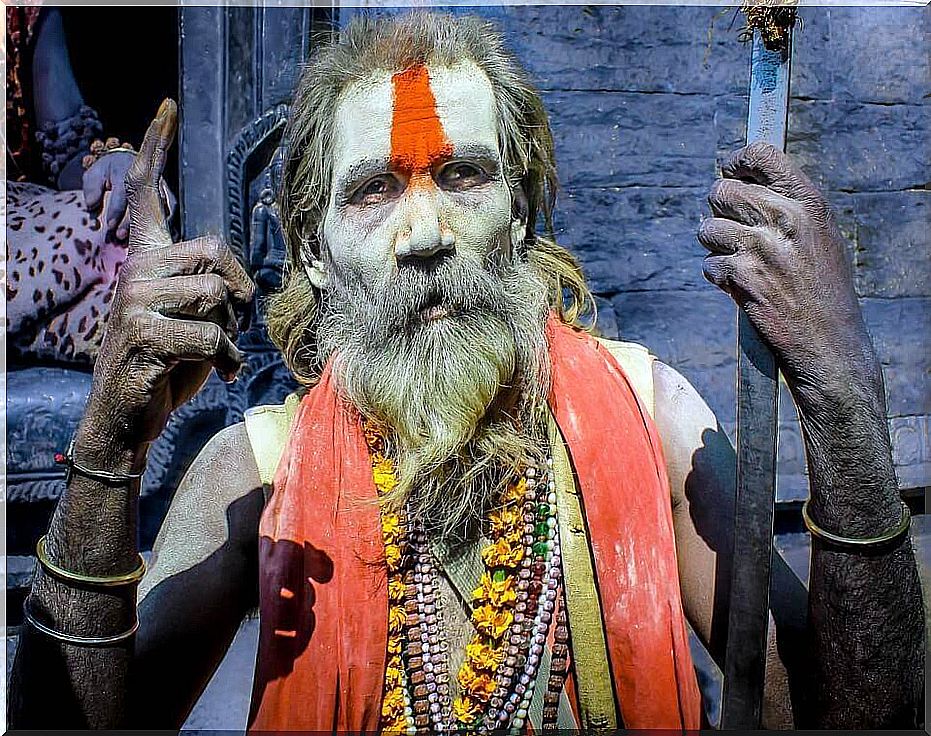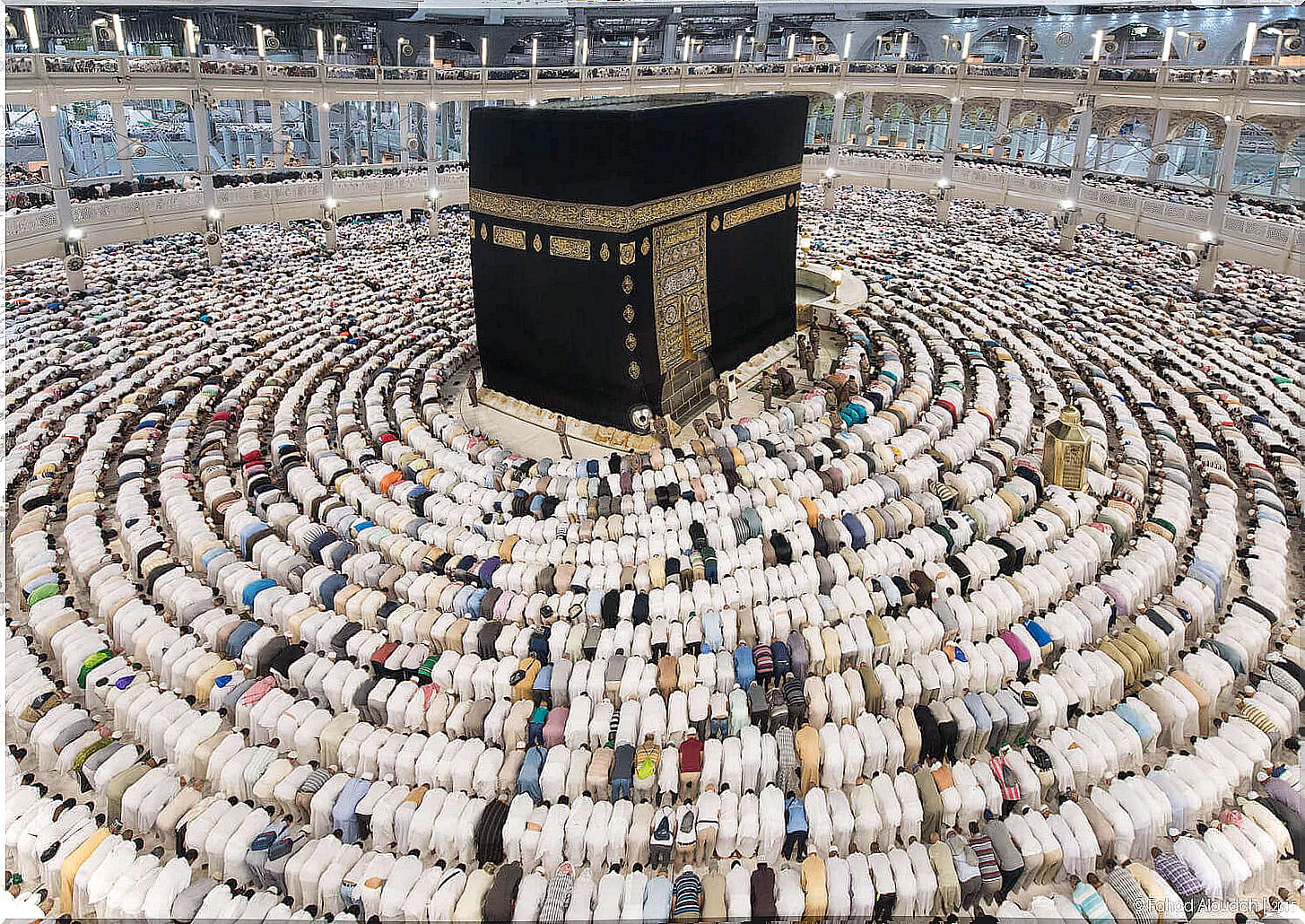What Motivates The Existence Of Religion?

After all, what motivates the existence of religion? At present, if we refer only to the scenario of Western culture, we can see that religion is considered a private matter. It is something that each one must keep to himself, so that the externalization of certain symbols little by little lost its meaning. This process was called secularism. People should be religious, but from the door inside.
Even if this only happens in theory, as the largest religious groups continue to maintain advantageous relations with the States. While the practice of minority religions is prohibited based on the argument of secularization, the majority maintain them at a higher level when it comes to representation in collective acts.
However, regardless of the social or legal norms that impede religious practices, each person lives religion differently. Whatever religion they practice, people can live their religion in three different ways.
Some interesting aspects about the existence of religion
religion versus religiosity
Before talking about religious orientation, it is essential to make a distinction between religion and religiosity. Religions, by definition, are timeless and universal (they don’t change with time or space), whereas religiosity is the way followers live religion. Religiosity is a subjective experience that depends on each religion and, in many cases, on each religious: their way of living and representing the religion.
Thus, we understand that the way people live their religion (religiosity or religious orientation) does not necessarily have to be in line with the precepts of religion. Among all the forms of religiosity that have been discovered in various spheres, in social psychology four types of religious orientations stand out. They are: extrinsic orientation, intrinsic orientation, search orientation and religious fundamentalism.

Extrinsic and Intrinsic Religious Motivation
Initially, two categories were proposed, extrinsic and intrinsic orientation. They served to differentiate people who consider their religious practices instrumentally – in order to achieve personal or social goals (for example, acceptance in the group) – from those who interpret their religious practices as an end in themselves. That is, people with an extrinsic orientation use religion, while those with an intrinsic orientation have their lives motivated by religion.
In this way, people would present an intrinsic orientation when the existence of religion is for them an end in itself, a fundamental reason for life, axis and absolute criterion for their decisions. On the other hand, those with an extrinsic orientation would consider religion as utilitarian and instrumental, as a simple means in the service of their own interests and ends (security, social status, entertainment, self-justification, support for personal lifestyle, etc.). For many people, as in other areas, there are both motivations.

search orientation
After the intrinsic and extrinsic orientations, a new orientation was added: that of search. This orientation is characterized by a fundamental question about existence as a whole. People with this orientation see and live religious doubts with something positive and are open to possible changes in religious issues.
Search orientation in relation to religion encourages and promotes an open and dynamic dialogue about the great existential questions that arise in the contradictions and tragedies of life. Search orientation is cognitively open, critical, and flexible orientation. It could even be another expression of the attitude characterized by doubt and the search for personal identity.

religious fundamentalism
Religious fundamentalism is defined as the belief that there is a set of religious teachings that shape the fundamental truth about humanity and divinity. This essential truth is opposed to the forces of evil, which must be fought. This truth must be followed today in accordance with the fundamental and immutable practices of the past.
People who have a fundamentalist orientation claim to have a special relationship with the deity. They tend to believe that their group is always right, whereas everyone else is wrong. This leads them to cultivate and maintain prejudices (it sets them apart from other groups and, therefore, they cannot get to know them in depth and, in this way, the experience only allows them to reinforce the stereotype). Fundamentalists also tend to have an extrinsic orientation, while the intrinsic and the search are opposed to it.
Within fundamentalism, it is possible to find another fundamentalist religious orientation. Intratextual fundamentalism. People with this orientation believe, above all, in the veracity of sacred texts. These people are the ones who most follow the sacred rites of their religion and their interpretation of these rites is quite literal.

The existence of religion and religiosity
The ways of living the religion are diverse, individualized by each group and, within that group, by each person. While religion and context influence how each person lives their religion, each will adapt differently. We must not forget that no one way is better or worse than another. Not even a fundamentalist religious orientation has to be bad or worse than others.
The problem arises when trying to impose a way of living religion on others. Adapting to another form of religiosity is complicated and takes time. When we respect others, coexistence can and should be peaceful. Likewise, States should not impose a way of living religion or encourage a certain way without thinking about the consequences.
Is that you? What do you think about the existence of religion and how it can be practiced in our lives?








